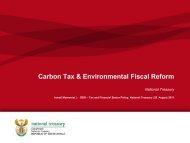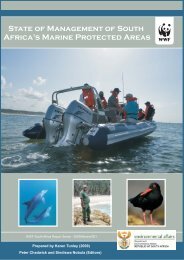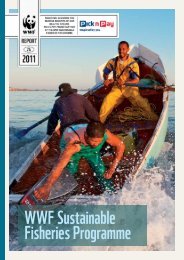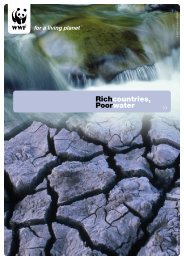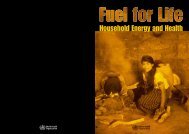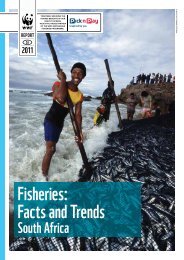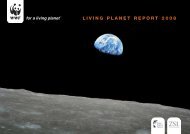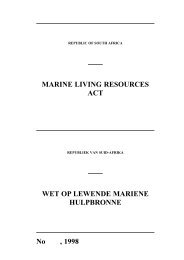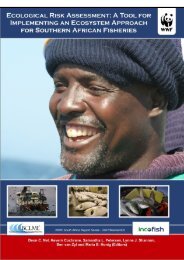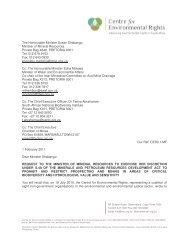ne Planet Lifestyle - WWF-India
ne Planet Lifestyle - WWF-India
ne Planet Lifestyle - WWF-India
You also want an ePaper? Increase the reach of your titles
YUMPU automatically turns print PDFs into web optimized ePapers that Google loves.
What we eatLuis (above) and Joe (left), aged 3, are popular figuresat their local allotment, where they grow prize-winningcustard marrows, yellow courgettes, cherry tomatoesand strawberries.1 food that is in season is tastier - and costs less to process and package2 cut down on meat and dairy produce - the rising cost of grainproduction is making prices soar3 waste less food - the US Department of Agriculture says Americans throwout 11 million pounds of fruit and vegetables every year. Only buy what youwill actually eat4 compost organic waste - create free, fertile soil to grow your own food in.5 buy fairly traded goods - and help over 7 million farmers, rural workersand their families in 58 developing countries6 buy local food - it costs less to transport7 try growing your own fruit and vegetables - for the same price as yourweekly shopping bill you could buy enough seeds to supply you with yourown fresh, organic vegetables all-year round8 avoid heavily processed products - fresh food costs less to produce,and therefore costs you less9 drink tap water, not bottled water - its free!10 buy MSC certified fish and fish products - the MSC label guaranteesthey have been fished sustainably.Did you know?> Eating less meat could reduce your food footprint by up to 40%> Pesticides and fertilisers use up a lot of e<strong>ne</strong>rgy to manufacture.Organic products consume up to 40% less e<strong>ne</strong>rgy, as well as supporthigher levels of wildlife> Every ton of strawberries flown into Europe from North Africa or theMiddle East emits up to 4 tons of carbon from air freighting> About a third of all our kitchen and garden waste (such as vegetablepeelings and cut grass) can be composted. However if it is thrownaway and is dumped in a landfill site, it turns into metha<strong>ne</strong>...which iseven more potent than carbon dioxide as a greenhouse gas.The <strong>WWF</strong> Pocket Guide to a O<strong>ne</strong> Pla<strong>ne</strong>t <strong>Lifestyle</strong> // www.panda.org/o<strong>ne</strong>pla<strong>ne</strong>t27EXITSEARCHPRINTBACKNEXT




